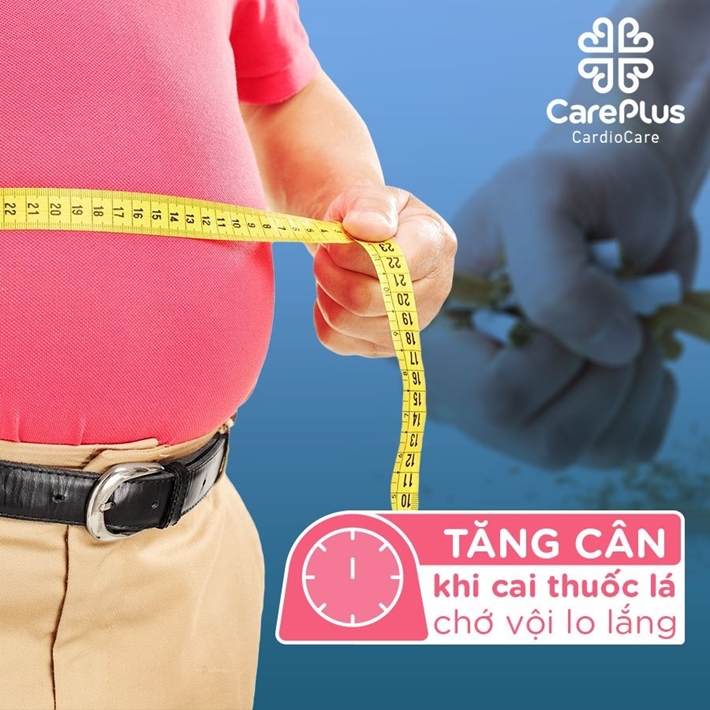5 things you should know if you are worried about putting on weight when you quit smoking
After quitting smoking for a while, many people gain weight rapidly, feel uncomfortable and heavy, even using this as an excuse to smoke again. The famous saying is, "Giving up smoking and gaining weight is worse than smoking?!". If smokers know these five things, they will undoubtedly be less worried about weight gain.

6/16/2021 1:38:06 AM
1️. Weight gain is expected in the early stages of smoking cessation, but only for the short term
Most people who quit smoking will gain weight, but mostly only in the early stages, mainly related to cravings and physical inactivity. However, after some time, if combined with a proper diet and exercise, a smoker will have a weight that is not much different from a person who is still a smoker, but with a more muscular body, less risk get sick more and lead a healthier lifestyle!
2️. You need to gain 40kg above your standard weight to have the same cardiovascular risk as smoking again
Weight gain of 5-6kg in a short time will initially be nothing compared to the harmful effects of tobacco. That is not to mention the risk of cancer, respiratory if still smoking.
3️. Moderate weight gain is a sign that the body is recovering from quitting smoking
Because when smoking, the body's metabolic rate is faster, "burning" more energy, so when the body stops smoking, we will have an excess of this energy. At the same time, the senses are freed from the smoke will stimulate appetite. We eat more and feel better. To repair and heal organ damage, the body needs more energy than is perfectly reasonable.
4️. Moderate weight gain is due to smoking cessation, but excessive weight gain is mainly due to you
On average, the fastest increase in smoking cessation is in the first 3 months, maybe 1kg per month. In 1 year after quitting smoking, you can gain 5kg. After that, the body will adjust again if you exercise and eat right. If you're gaining weight faster than this, it's a matter of diet and fitness, not smoking cessation.
5️. Maybe you crave nicotine but not necessarily food
Tobacco, with its addictive nature, will create habitual reflexes in the brain. Drinking coffee is having to hold a cigarette to take a breath, now quit smoking, some people replace it with chewing food. The more you smoke before, the more you eat now, leading to weight gain. To replace this feeling, you can drink water and eat some relatively good and low-calorie snacks such as nuts, vegetables, fruits, sugar-free tablets, etc. If it is too difficult, it is necessary to consult a doctor to use drugs to support withdrawal.
In short, weight gain due to smoking cessation is only temporary. In the long run, the benefits from smoking cessation ultimately outweigh those of smoking again for weight loss. Difficulties with quitting smoking are entirely surmountable. You can think of quitting smoking like remodeling your healthy home. It may be a bit messy at first, not very beautiful, but its structure will be more solid, more beautiful in the long run.